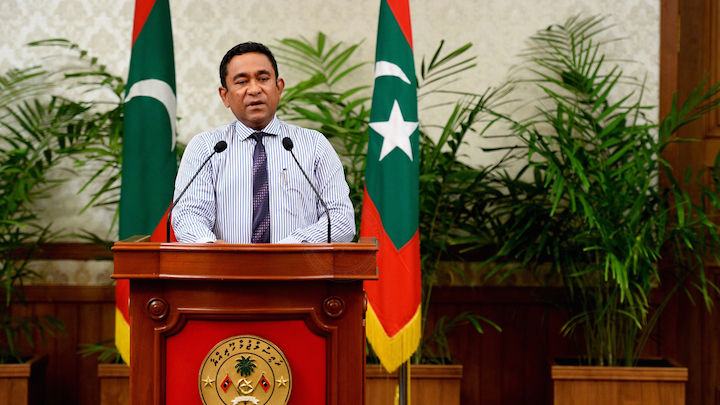Vice president obstructed inquiry into bomb plot, says President Yameen
Addressing the nation for the first time since the blast on the president’s speedboat on September 28, Yameen revealed that “bomb-making equipment” was discovered during yesterday’s raids of homes of Adeeb’s close associates.

25 Oct 2015, 09:00
Vice President Ahmed Adeeb exerted undue influence over the police to obstruct the investigation into an alleged attempt to assassinate him, President Abdulla Yameen has said.
Addressing the nation for the first time since the blast on the president’s speedboat on September 28, Yameen revealed that “bomb-making equipment” was discovered in the homes of two soldiers arrested on suspicion of tampering with evidence.
The vice president was also working with MPs of the main opposition Maldivian Democratic Party (MDP) as well as ruling party MPs to impeach the president, Yameen said in a lengthy televised statement.
“I noted that the vice president’s influence and power was spread very much over the whole police institution. This is not how I desired it to be,” he said.
Become a member
Get full access to our archive and personalise your experience.
Already a member?
Discussion
No comments yet. Be the first to share your thoughts!
No comments yet. Be the first to join the conversation!
Join the Conversation
Sign in to share your thoughts under an alias and take part in the discussion. Independent journalism thrives on open, respectful debate — your voice matters.




